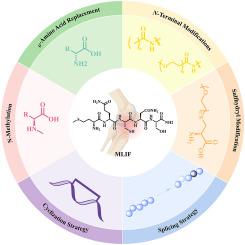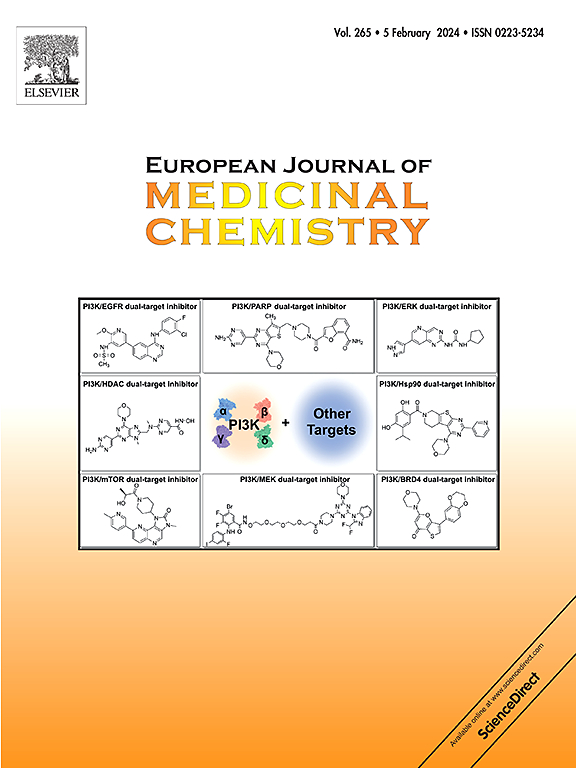Discovery of proteolytically stable monocyte locomotion inhibitory factor peptide through systematic structural optimization
IF 6
2区 医学
Q1 CHEMISTRY, MEDICINAL
引用次数: 0
Abstract
The identification of novel molecular candidates capable of treating osteoarthritis (OA) has significant clinical implications. Monocyte locomotion inhibitory factor peptide (MLIF) is a pentapeptide derived from Entamoeba histolytica. It has been found possesses selective anti-inflammatory effects both in vitro and in vivo. Nonetheless, like many peptide therapeutics, MLIF has relatively poor proteolytic stability and short half-life in vivo, hindering its effective clinical applicability. To overcome these limitations, structural optimizations are needed to enhance the stability of MLIF while preserving or even enhancing its anti-inflammatory activities. Herein, a series of MLIF derivatives were designed and synthesized based on diverse structural modifications including N-terminal modifications, D-amino acid replacement, N-methylation, sulfhydryl modification, cyclization, and splicing strategy. Among all the MLIF derivatives, MLIF 30 with replacing L-methionine (Met) with D-Met and linking the polyethylene glycol (PEG) to cysteine (Cys) of MLIF displayed enhanced in vitro anti-inflammatory activities. Further in vivo experiment demonstrated MLIF 30 could reduce cartilage inflammation and attenuate cartilage damage more effectively in the collagenase induced osteoarthritis (CIOA) mice due to its improved serum stability compared to the linear MLIF. These findings laid foundation for the development of potent and stable anti-inflammatory peptide therapeutics and pushed the frontier of MLIF for clinical OA treatment.

求助全文
约1分钟内获得全文
求助全文
来源期刊
CiteScore
11.70
自引率
9.00%
发文量
863
审稿时长
29 days
期刊介绍:
The European Journal of Medicinal Chemistry is a global journal that publishes studies on all aspects of medicinal chemistry. It provides a medium for publication of original papers and also welcomes critical review papers.
A typical paper would report on the organic synthesis, characterization and pharmacological evaluation of compounds. Other topics of interest are drug design, QSAR, molecular modeling, drug-receptor interactions, molecular aspects of drug metabolism, prodrug synthesis and drug targeting. The journal expects manuscripts to present the rational for a study, provide insight into the design of compounds or understanding of mechanism, or clarify the targets.

 求助内容:
求助内容: 应助结果提醒方式:
应助结果提醒方式:


